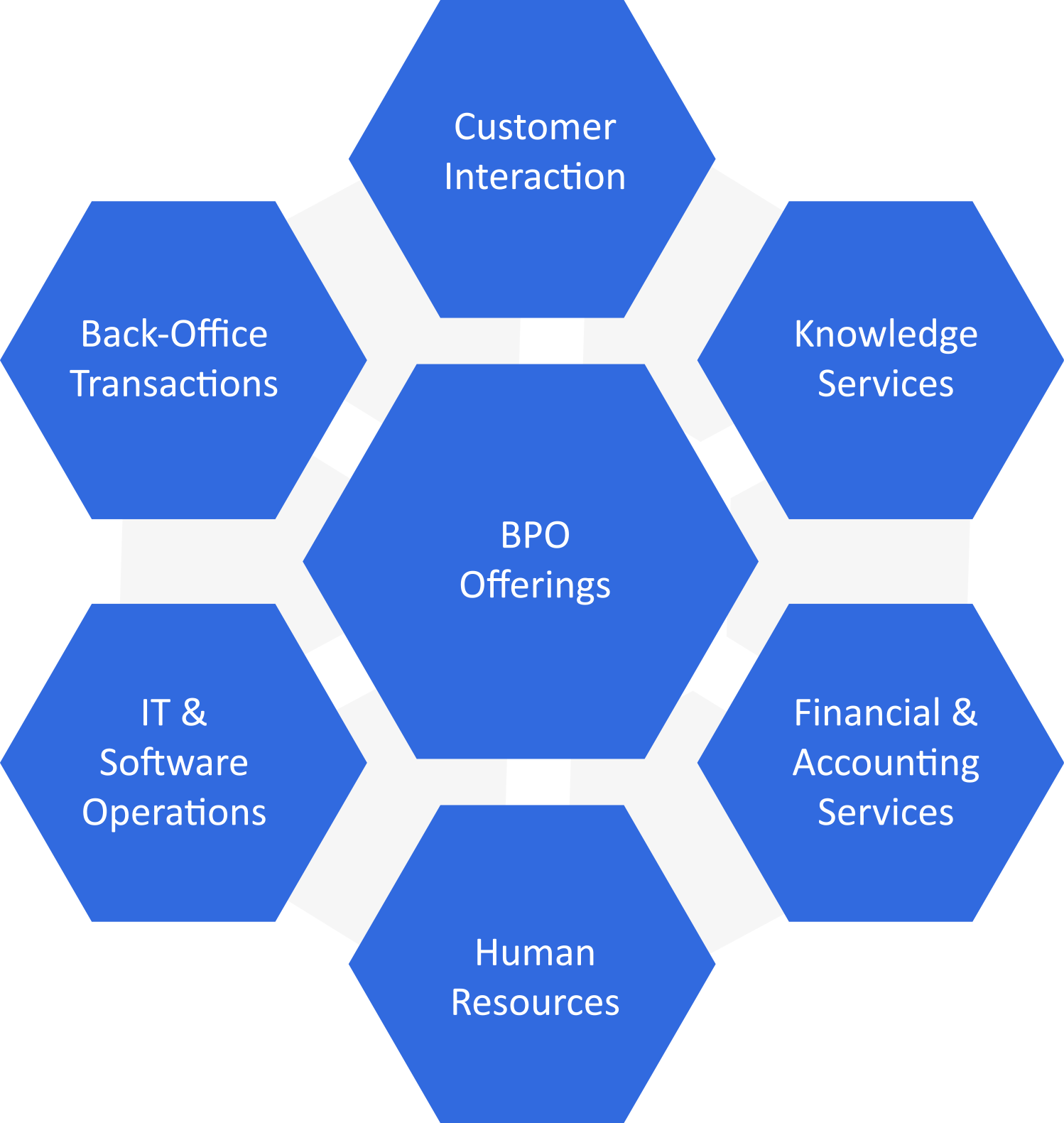BPO
Business Process Outsourcing (BPO) is a way for companies to efficiently and cost effectively outsource some of their essential but non-core business operations to another company that specializes in delivering those services.
BPO work falls under two broad categories:
a) Back-office functions
b) Front-office functions
Business of all sizes and from across all industry verticals look to leverage the BPO services as a way to become efficient in their non-core operations cost effectively. The BPO services industry has been growing steadily over the past couple of decades and it continues to grow as more companies jump to the bandwagon of leveraging BPO services.
The benefits of outsourcing to BPO are many. Here are some of them:
• Reduce costs: Outsourced companies operating from low-cost regions offers lower cost for BPO services. In addition, businesses can use variable cost model and avoid high fixed costs.
• Focus on core business functions: Outsourcing non-core business activities frees up time to management and employees to focus on business issues such as product and service design and delivery.
• Better results from specialized BPO companies: Outsourcing companies invest and innovate and bring efficiencies to non-core business activities.
• Expand Global Presence: Outsourcing companies can leverage their presence in multiple countries and keep the local company’s redundant divisions to a minimum
• Flexibility to grow or shrink: companies that outsource their non-core business processes can scale for business fluctuations and manage expenses accordingly

It is easy to engage with us for your BPO needs. Simply follow these steps:
• Define your requirements
• Put together a request for proposal (RFP)
• Work on a contract with us
• Transition the work and processes to us
• Assess and manage ongoing relationship
